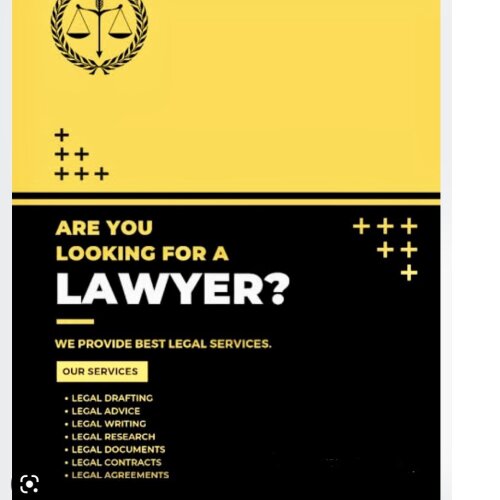Best Administrative Lawyers in Osogbo
Share your needs with us, get contacted by law firms.
Free. Takes 2 min.
List of the best lawyers in Osogbo, Nigeria
About Administrative Law in Osogbo, Nigeria:
Administrative law in Osogbo, Nigeria governs the actions and decisions of government agencies and officials. It ensures that these entities act within the law and fairly towards individuals and organizations. This area of law is crucial for ensuring accountability and transparency in government operations.
Why You May Need a Lawyer:
You may need a lawyer for administrative law matters in Osogbo if you are facing issues such as government regulations, disputes with government agencies, licensing or permit matters, or challenges with administrative decisions. A lawyer can help navigate the complex legal procedures and protect your rights in these situations.
Local Laws Overview:
In Osogbo, Nigeria, administrative law is governed by various statutes, regulations, and case law. Key aspects include the Administrative Procedures Act, the Public Service Rules, and the Constitution of Nigeria. These laws outline the powers and limitations of government agencies, as well as the rights of individuals in their interactions with these entities.
Frequently Asked Questions:
1. What is administrative law?
Administrative law deals with the activities of government agencies, including rulemaking, enforcement, and adjudication.
2. What rights do individuals have in administrative proceedings?
Individuals have the right to be heard, receive notice of decisions, and appeal adverse rulings in administrative proceedings.
3. How can a lawyer help with administrative law matters?
A lawyer can provide legal advice, represent you in administrative proceedings, help with paperwork, and ensure your rights are protected.
4. What is the role of government agencies in administrative law?
Government agencies are responsible for implementing laws, issuing regulations, and making decisions in specific areas of governance.
5. How are administrative decisions reviewed?
Administrative decisions can be reviewed through internal agency appeals, judicial review, or through specialized administrative tribunals.
6. What is the importance of due process in administrative law?
Due process ensures that individuals are treated fairly, have notice of proceedings, and the opportunity to be heard before a decision is made.
7. Can I challenge a government agency's decision?
Yes, you can challenge a government agency's decision through administrative appeals or judicial review if you believe it is unlawful or unfair.
8. How long do administrative proceedings usually take?
The length of administrative proceedings can vary depending on the complexity of the case and the specific agency involved.
9. Are there any alternatives to going to court in administrative law cases?
Yes, alternative dispute resolution methods such as mediation or arbitration can be used to resolve administrative law disputes outside of court.
10. How can I find a lawyer experienced in administrative law in Osogbo?
You can contact the Nigerian Bar Association or local law firms for referrals to lawyers who specialize in administrative law in Osogbo.
Additional Resources:
For more information on administrative law in Osogbo, Nigeria, you can visit the Nigerian Bar Association website, the Federal Ministry of Justice, or consult legal aid organizations that offer services in this area of law.
Next Steps:
If you require legal assistance in administrative law matters in Osogbo, it is advisable to schedule a consultation with a qualified lawyer who can assess your case and provide guidance on the best course of action.
Lawzana helps you find the best lawyers and law firms in Osogbo through a curated and pre-screened list of qualified legal professionals. Our platform offers rankings and detailed profiles of attorneys and law firms, allowing you to compare based on practice areas, including Administrative, experience, and client feedback.
Each profile includes a description of the firm's areas of practice, client reviews, team members and partners, year of establishment, spoken languages, office locations, contact information, social media presence, and any published articles or resources. Most firms on our platform speak English and are experienced in both local and international legal matters.
Get a quote from top-rated law firms in Osogbo, Nigeria — quickly, securely, and without unnecessary hassle.
Disclaimer:
The information provided on this page is for general informational purposes only and does not constitute legal advice. While we strive to ensure the accuracy and relevance of the content, legal information may change over time, and interpretations of the law can vary. You should always consult with a qualified legal professional for advice specific to your situation.
We disclaim all liability for actions taken or not taken based on the content of this page. If you believe any information is incorrect or outdated, please contact us, and we will review and update it where appropriate.








